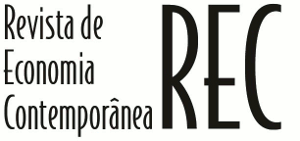ABSTRACT
This paper investigates deindustrialization as a globally unequal process, related both to the degree of development and path dependence, and to economic policies that reinforce long-term trends or, alternatively, enable structural changes. This phenomenon, Traditionally seen as the fall in industrial production/employment as the country develops, can, however, engender considerable subsectoral and even regional heterogeneity, an aspect that this research seeks to explore. The methodology comprises a theoretical analysis, with a review of the literature on deindustrialization and sectoral heterogeneity and an empirical investigation, with descriptive analysis of manufacturing data for 111 countries, in addition to a specific analysis for Brazil. The results show that developed countries consolidated their leadership in the most advanced sectors of industry, whereas most developing economies, including Brazil, experienced not only a process of deindustrialization, but also the concentration of industrial productive activities in subsectors intensive in technologies with lower added value. In this scenario, if structural change constitutes an important driving force of economic development, the recent trends observed signal serious challenges to the promotion of inclusive and sustained growth in developing economies and in Brazil.
KEYWORDS:
deindustrialization; subsectoral heterogeneity; manufacturing industry; technological intensity; Brazilian economy

 Thumbnail
Thumbnail
 Thumbnail
Thumbnail
 Thumbnail
Thumbnail
 Thumbnail
Thumbnail
 Thumbnail
Thumbnail
 Thumbnail
Thumbnail
 Fonte: Elaboração própria com base em dados da
Fonte: Elaboração própria com base em dados da  Fonte: Elaboração própria com base em dados da
Fonte: Elaboração própria com base em dados da  Fonte: Elaboração própria com base em dados de
Fonte: Elaboração própria com base em dados de  Fonte: Elaboração própria com base em dados da PIA (
Fonte: Elaboração própria com base em dados da PIA ( Fonte: Elaboração própria com base em dados de UN Comtrade (
Fonte: Elaboração própria com base em dados de UN Comtrade ( Fonte: Elaboração própria com base em dados de UN Comtrade (
Fonte: Elaboração própria com base em dados de UN Comtrade (